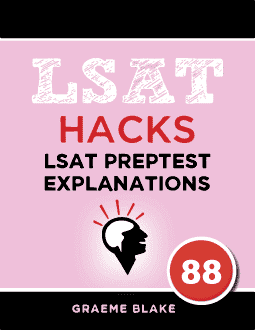QUESTION TEXT: Columnist: The dangers of mountain climbing have been greatly…
QUESTION TYPE: Flawed Reasoning
CONCLUSION: The media has exaggerated the dangers of mountain climbing.
REASONING: Between 1922 to 2002, there were less than 200 climbing fatalities on Mount Everest. Mount Everest is one of the world’s most dangerous mountains. On the other hand, there were 7,000 traffic fatalities in France in 2002.
ANALYSIS: This is a very flawed argument. How many people are mountain climbers? How many people in France drove a car in 2002? I bet France had more drivers, and with more drivers, it’s more likely that there would be traffic fatalities.
Let’s imagine that “fewer than 200 climbing fatalities” was 199 fatalities, but there were only 199 people between those 80 years climbing Mount Everest. In that case, we’d have a 100% death rate! That’s very dangerous! On the other hand, the 7,000 French traffic fatalities is a very small subset of the French driving population. So the denominator is important.
___________
- This is irrelevant and doesn’t factor into the columnist’s argument. Other years’ traffic fatalities wouldn’t help us know how dangerous it is to drive in France.
- Like in A, more traffic data isn’t what we’re missing. Even with this information, we still can’t determine how dangerous it is to drive in France, and the columnist doesn’t commit this flaw.
- Implementing new safety measures still doesn’t tell us what the actual danger of mountain climbing is, and the columnist doesn’t consider it as part of the argument.
- CORRECT. If we know the denominator (total number) of these populations, we can better compare these numbers’ significances.
- Knowing this information doesn’t weaken the columnist’s conclusion. It still doesn’t tell us about the overall underlying populations that we need to know.
Recap: The question begins with “Columnist: The dangers of mountain climbing have been greatly”. It is a Flawed Reasoning question. Learn more about LSAT Flaw questions in our guide to LSAT Logical Reasoning question types.


Leave a Reply